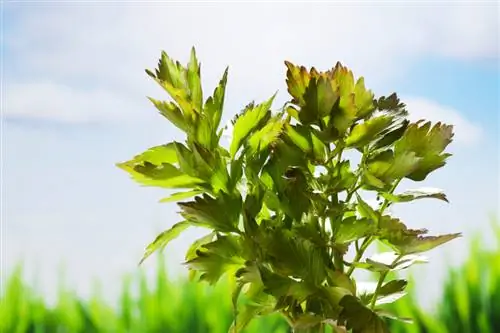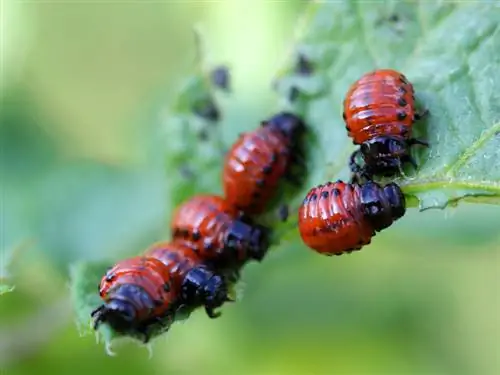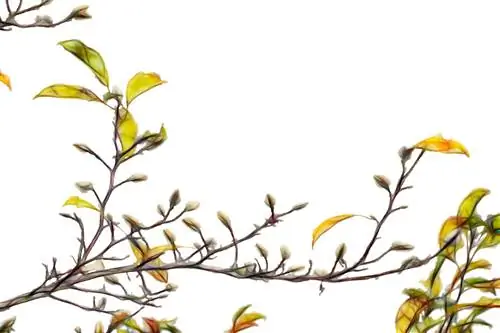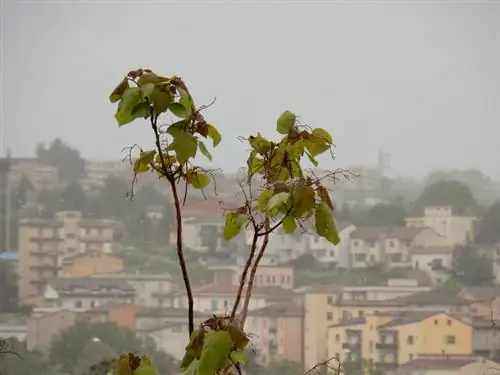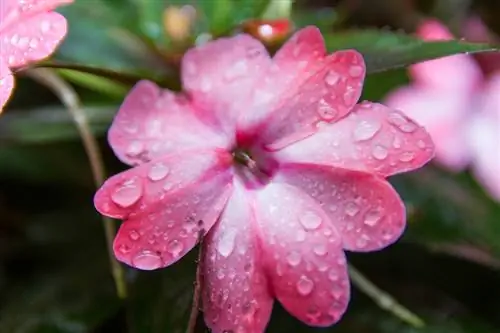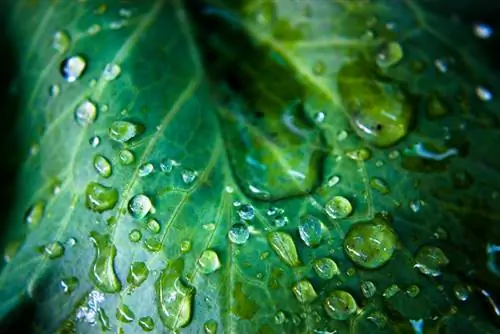- Author admin leonars@hobbygardeners.com.
- Public 2023-12-16 16:46.
- Last modified 2025-06-01 06:02.
The lovage is ailing. Its leaves dry up and fall off. What's up? This could be an illness. But be careful: culinary herbs in particular should not be treated with chemicals
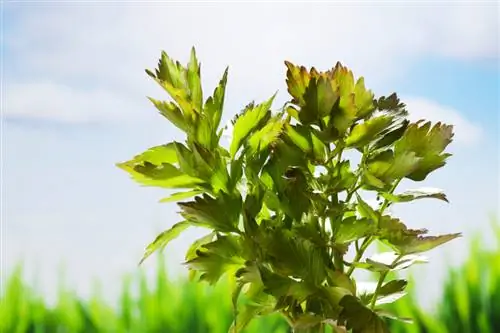
What diseases can occur in lovage?
Lovage diseases can, among other things, caused by downy mildew or Ramularia leaf spot. Dry, discolored leaves indicate such a disease. Pests such as thrips or black aphids can also occur. Prevention is possible through suitable location selection and care.
A robust culinary herb
Basically, lovage can be described as an extremely robust herb that is not very susceptible to disease. As a rule, it is he althy - regardless of whether it grows in a pot or outdoors.
Beware of downy mildew
Lovage is rarely affected by downy mildew, a fungus. Signs include yellowing leaves that later turn brown and fall off. The fungal spores penetrate the inside of the leaves. There the fungus robs the plant of nutrients, causing its leaves to turn yellow. The underside of the leaf is usually covered by a whitish coating.
This happens quickly when the lovage is exposed to warm, humid weather. This can happen, for example, in hot and humid summers or when growing in a greenhouse. The solution: radically cut off affected shoots and dispose of them.
Ramularia leaf spot
Another fungal disease that can occur with Maggi herb is Ramularia leaf spot. First, 3 to 8 mm large, round to square spots appear on the leaves. These are light on the inside and light brown on the outside. Later the spots merge into one another, the leaves turn brown and die.
Discolored leaves and shoots dying?
If discolored leaves appear and the shoots die, a fungal pathogen does not necessarily have to be to blame. The cause can be thrips. This is a fringed winged insect that sucks out the cell sap of the maggi herb, causing the plant to die. Therefore, always check the plant for pests first!
Preventing diseases
Weak and stressed plants, as well as plants that are planted and cared for incorrectly, are more susceptible to diseases (and pests). You can avoid diseases on the lovage from the outset.
The following preventive measures are available:
- Prevent stress for the plant e.g. B. Transplanting
- plant in a suitable location
- Prevent nutrient deficiencies - fertilize regularly
- do not expose to extreme heat
- Avoid dryness and water directly onto the root area
- Prevent flower and seed formation (take away energy)
Tips & Tricks
Even if the lovage seems he althy. It is often attacked by black aphids. When harvesting, make sure to clean the herb properly afterwards.

